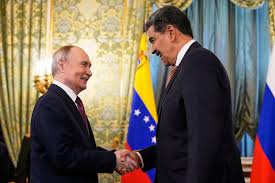An Overview of Putin’s Russia: Recent Developments and Implications

Introduction
Vladimir Putin’s leadership has shaped modern Russia and its role on the global stage, making it a topic of significant relevance worldwide. As geopolitical tensions rise and international relations evolve, understanding the dynamics of Putin’s Russia is crucial for grasping current events that affect not just the region but the entire world.
Recent Developments in Russia
In recent months, President Putin has faced a multitude of challenges both domestically and internationally. The ongoing conflict in Ukraine remains a central issue, influencing Russia’s foreign policy and its relationships with Western nations. As of October 2023, Russian military operations in Ukraine have continued to escalate, prompting further sanctions from the United States and European Union. This has led to a strained Russian economy, with the rouble hitting all-time lows against major currencies.
Furthermore, Putin’s government has been navigating increased dissent within the country. The war in Ukraine has prompted protests and a notable rise in public opposition to the conflict, highlighting a growing divide between the Kremlin and segments of Russian society. Human rights organizations have reported a wider crackdown on dissidents and activists, leading to increased arrests and suppression of free speech.
International Relations and Impacts
Amidst these developments, Putin has sought to strengthen alliances with non-Western countries, notably with China and Iran. Recent discussions with Chinese President Xi Jinping signal a potential shift in global power dynamics. The two countries have articulated their intent to bolster economic ties and military cooperation, which could counterbalance Western influence.
Analysts suggest that this pivot towards the East could have long-term implications for global geopolitics, potentially leading to a reconfiguration of international alliances. As the geopolitical landscape evolves, NATO is reportedly reassessing its strategies in Eastern Europe to mitigate any further Russian expansionism.
Conclusion
As we look towards the future, the significance of Putin’s governance and policies in Russia cannot be understated. The ongoing conflict in Ukraine, coupled with economic challenges and internal dissent, suggests a tumultuous period ahead for Russia. Observers believe that how the Kremlin navigates these issues will determine not only Russia’s future but also its relationship with the rest of the world. Monitoring these developments is essential for understanding the broader geopolitical implications in an increasingly multipolar world.
